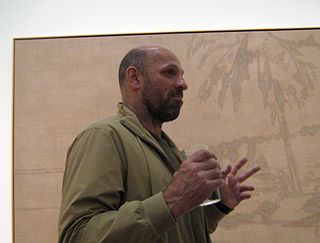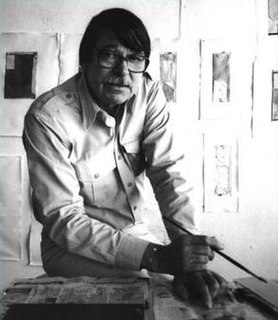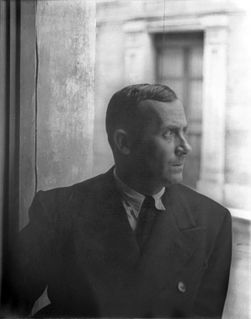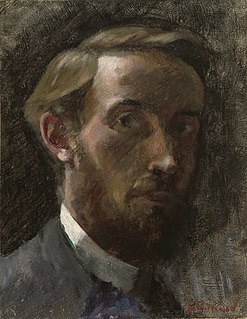A Quote by Hilla von Rebay
Painting, like music, has nothing to do with the reproduction of nature, nor interpretation of intellectual meanings. Whoever is able to feel the beauty of colors and forms has understood nonobjective painting.
Related Quotes
Painting is something that takes place among the colors, and one has to leave them alone completely, so that they can settle the matter among themselves. Their intercourse: this is the whole of painting. Whoever meddles, arranges, injects his human deliberation, his wit, his advocacy, his intellectual agility in any way, is already disturbing and clouding their activity.
Personally I would like to have pupils, a studio, pass on my love to them, work with them, without teaching them anything.. ..A convent, a monastery, a phalanstery of painting where one could train together.. ..but no programme, no instruction in painting.. ..drawing is still alright, it doesn't count, but painting - the way to learn is to look at the masters, above all at nature, and to watch other people painting.
In fine arts, when you make a painting, it's just a painting. But if you make a painting in the entertainment industry, it can be an album cover or a t-shirt or a logo. I like that entertainment has this usefulness - that it's ultimately trying to make a bunch of people feel something, and to think about life and be able to use things that were so simple and direct but potentially have a really powerful effect.
In 1915 Sophie Tauber and I carried out our first works in the simplest forms, using painting, embroidery and pasted paper (without using oil colors to avoid any reference with usual painting). These were probably the first manifestations of their kind, pictures that were their own reality, without meaning or cerebral intention. We rejected everything in the nature of a copy or a description, in order to give free flow to what was elemental and spontaneous.






































